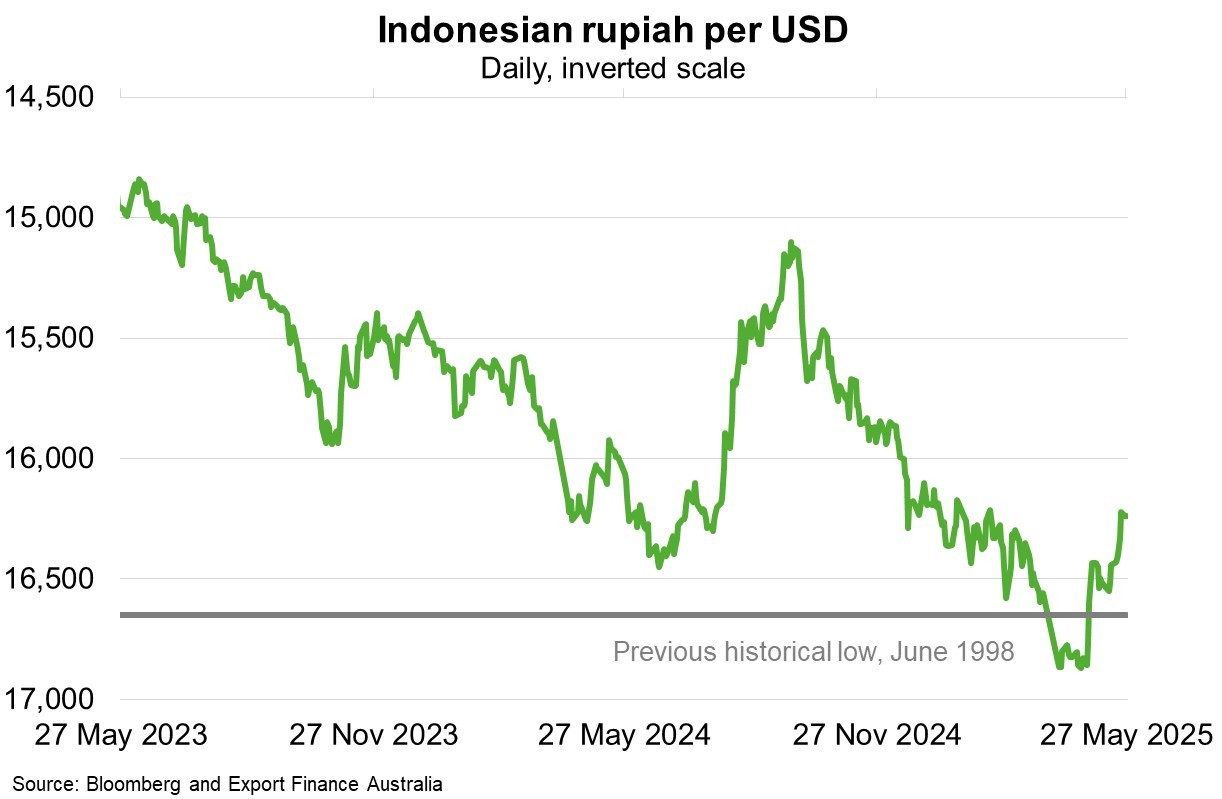© Export Finance Australia
The views expressed in World Risk Developments represent those of Export Finance Australia at the time of publication and are subject to change. They do not represent the views of the Australian Government. The information in this report is published for general information only and does not comprise advice or a recommendation of any kind. While Export Finance Australia endeavours to ensure this information is accurate and current at the time of publication, Export Finance Australia makes no representation or warranty as to its reliability, accuracy or completeness. To the maximum extent permitted by law, Export Finance Australia will not be liable to you or any other person for any loss or damage suffered or incurred by any person arising from any act, or failure to act, on the basis of any information or opinions contained in this report.
Indonesia—Trade tensions will exacerbate domestic demand slowdown
Indonesia’s economy is slowing; GDP growth of 4.87% y/y in Q1 2025 was the lowest since 2021. Growth in household spending—the powerhouse of Southeast Asia’s largest economy—moderated, despite the Eid al-Fitr holiday typically being a boon for travel and consumer spending. Government spending also contracted following an election-related boost in 2024. Austerity measures worth US$19 billion were announced in February—including a 70% reduction in funding for the public-works ministry, which oversees infrastructure—to sustain spending on signature programs like the free school meal initiative. Mining output also shrank amid lower global commodity prices and investment growth decelerated sharply amid domestic and global policy uncertainty and exchange rate volatility. The rupiah reached a record low in April, but it has since strengthened (Chart). Pressure on the rupiah worsens financial risks and limits the ability of Bank Indonesia to stimulate growth via lower interest rates. That said, comfortable foreign exchange reserves provide a buffer to excessive volatility.
In contrast, robust exports (+6.8% year-on-year in Q1, compared to +1.5% in Q1 last year) cushioned the economy as orders were front-loaded in anticipation of higher tariffs. Despite a continued tourism rebound, export resilience is unlikely to last. Finance Minister Sri Mulyani estimates that now-delayed US reciprocal tariffs of 32% on Indonesian exports could cut potential growth by 0.3 to 0.5 ppts. The US was Indonesia’s second largest export destination last year and global trade tensions do not bode well for key commodity exports. Overall, the IMF forecasts GDP growth to decelerate to 4.7% this year and next, below the aspirational 8.0% target set by the Prabowo government and the rate needed to achieve the goal of high-income status by 2045. Indonesia is Australia’s 10th largest export market (US$16 billion in 2024) with a commitment to deepen bilateral and regional trade and investment ties.

